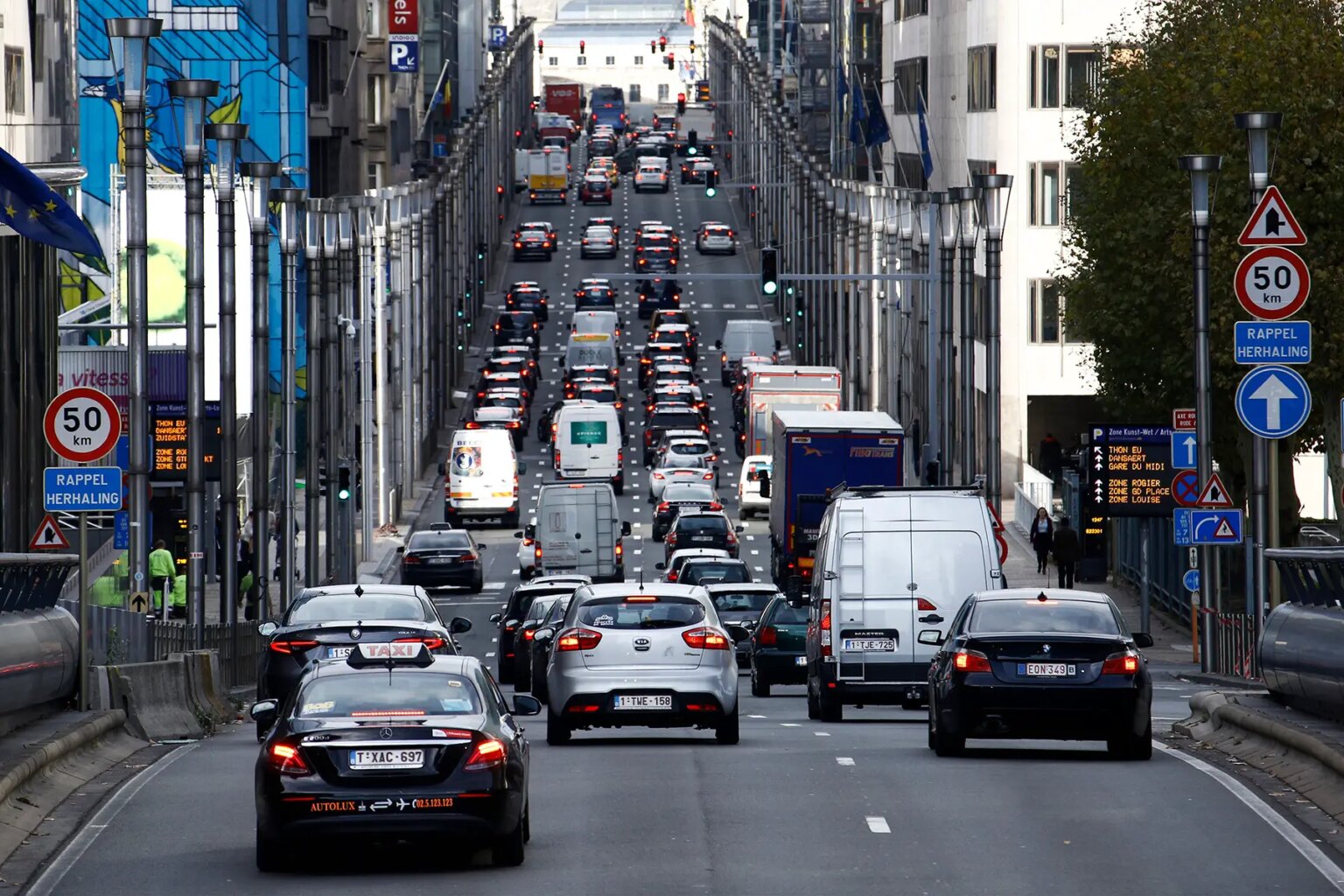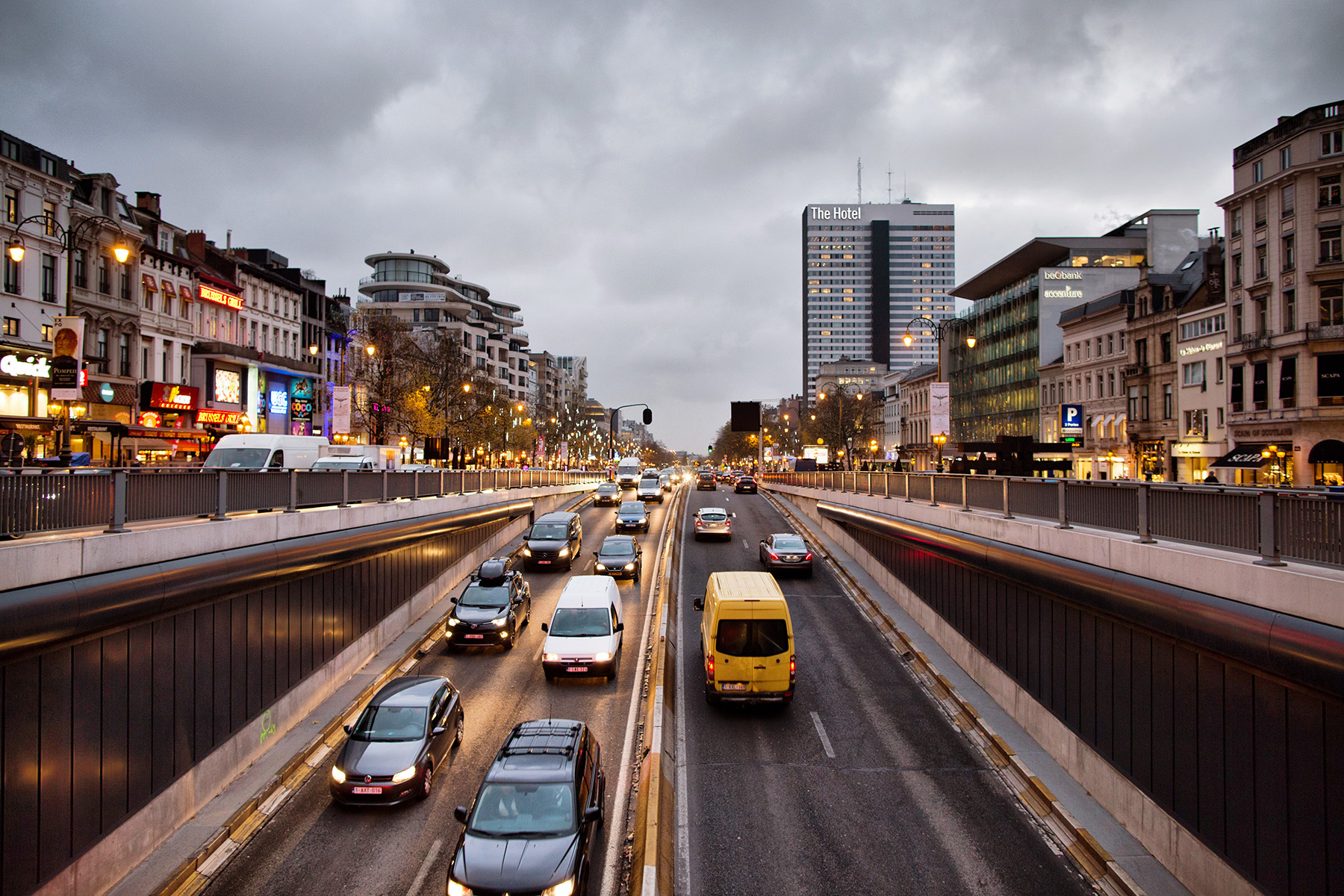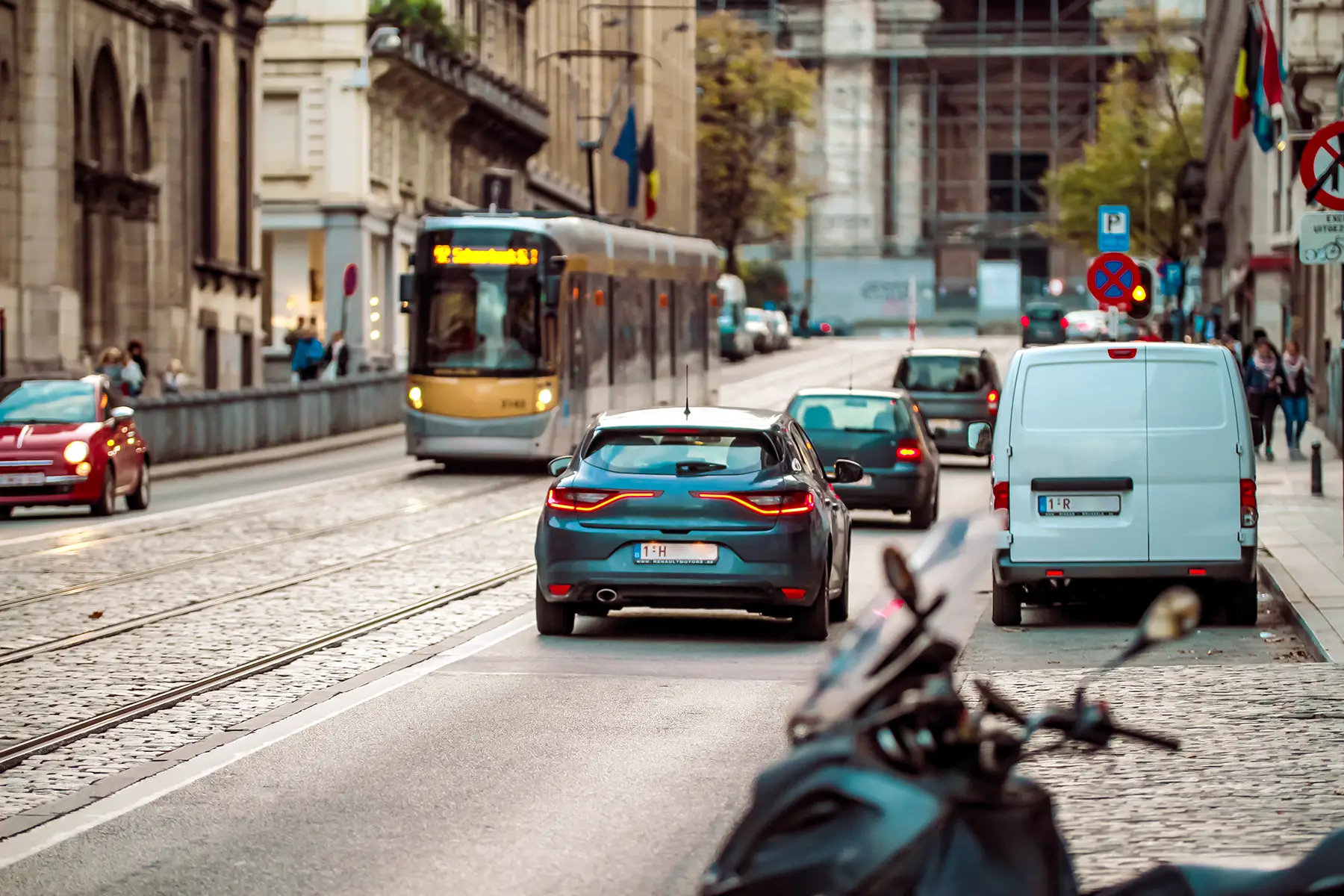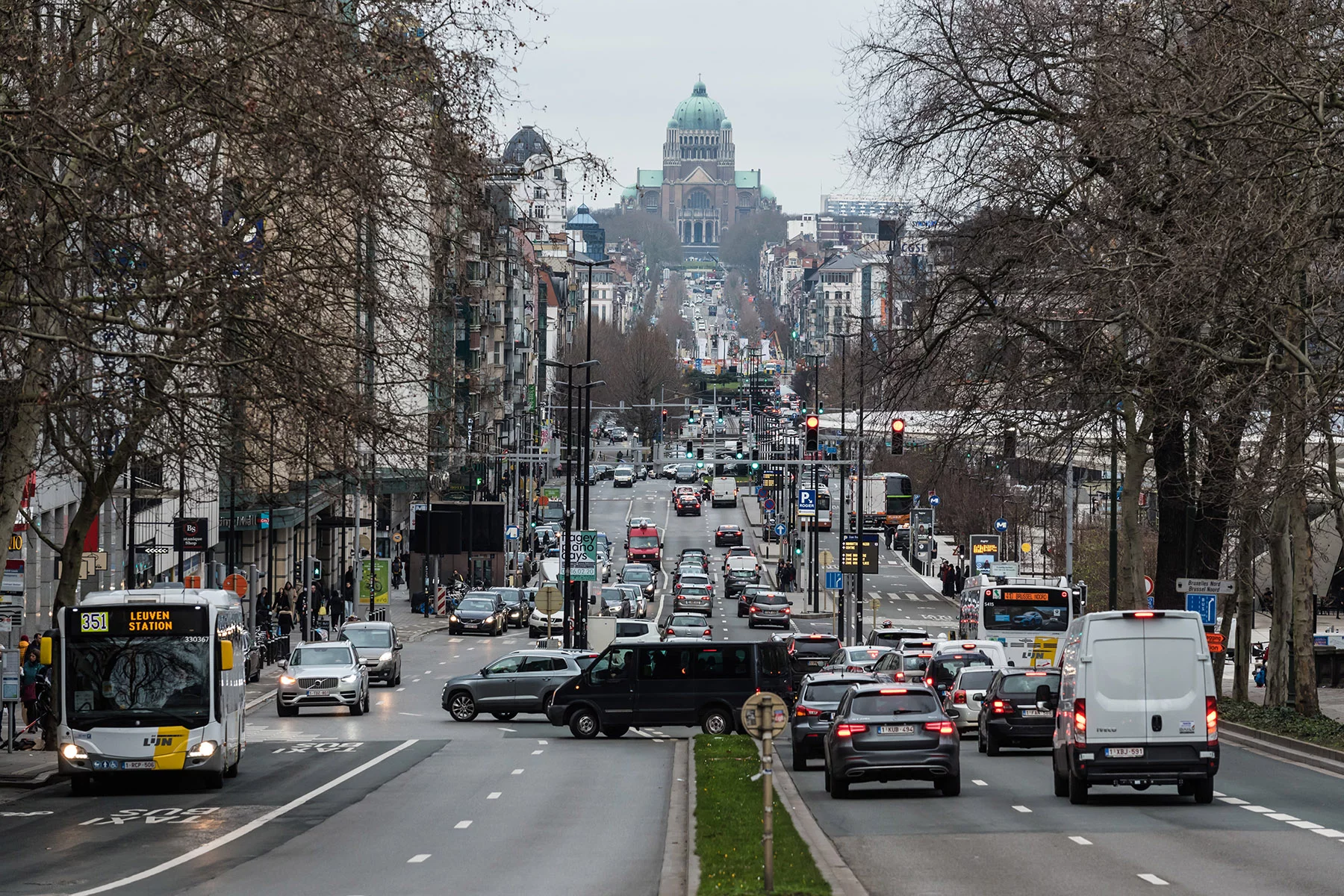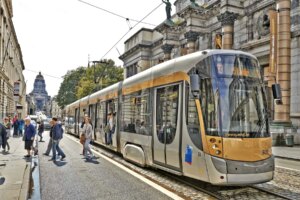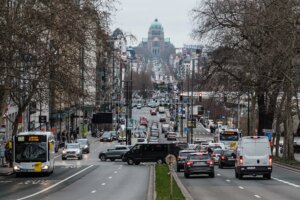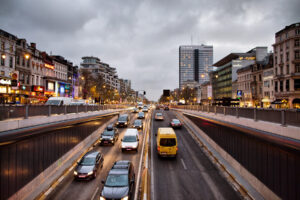Moving to Belgium and wanting to drive a car? Then you’ll need to familiarize yourself with the country’s rules and requirements when it comes to taking a vehicle out on the road. Fortunately, everything is fairly straightforward, and things don’t differ greatly from many other EU countries.
Here’s the essential information on all things driving-related, with sections about:
- Driving in Belgium
- Who can drive in Belgium?
- How to get your Belgian driving license
- Drivers with disabilities in Belgium
- Car registration and maintenance in Belgium
- Driving costs in Belgium
- Driving rules and penalties in Belgium
- Road signs in Belgium
- Traffic information in Belgium
- Parking in Belgium
- Road accidents and breakdowns
- Cars in Belgium
- Car repair in Belgium
- Useful resources
DVV
Get insured with DVV verzekeringen. No matter whether you need coverage for your car, family, health, or something else, they have the policy for you. With more than 650 consultants ready to help, your insurance is in safe hands. Contact DVV verzekeringen today to get a quote.
Driving in Belgium
A small, densely-populated and multicultural country, Belgium has many foreign drivers on its roads. It boasts a highly developed road network and, although public transport is good, car driving is very popular. Traffic can be notoriously bad, especially in the major cities. In fact, Brussels ranks the 3rd most congested city on the 2021 Global Traffic Index with drivers spending an estimated 134 hours a year sitting in traffic.
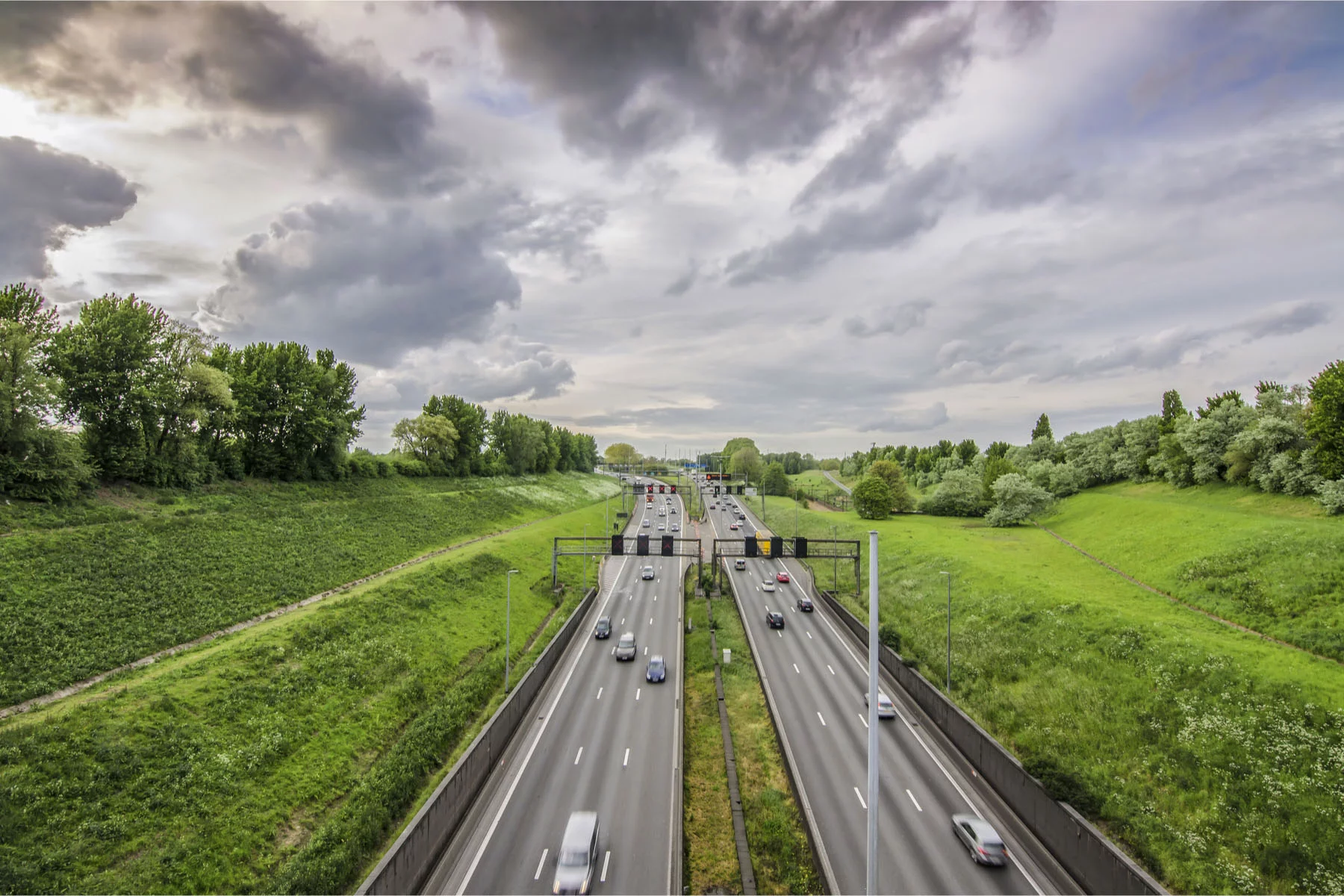
Driving in Belgium is the same as in most continental European nations, on the right-hand side of the road. There were just under six million passenger cars in the country in 2019, which works out at just over 500 cars per 1,000 inhabitants (slightly below the EU average). In the same year there were 56.4 accidents per million people, just above the EU average of 51.2.
Belgian cars produced 107.7g of CO2/km in 2020, just below the EU average of 108.2. To try and combat vehicle emissions, the country has introduced low emission zones (LEZ), where only specially registered vehicles can enter. There are currently zones in Brussels, Antwerp, Ghent, and the Wallonia region.
The Federal Public Service for Mobility and Transport oversees all forms of transport in Belgium, including road traffic, and runs the Vehicle Registration Service. Each region of Belgium – Flanders, Wallonia and Brussels – also has its own mobility and transport department.
Who can drive in Belgium?
Anyone aged 18 and over with a valid driving license can drive in Belgium. You can drive with a license from another EU/EFTA country on pretty much the same terms as a Belgian license, and you don’t need to exchange it at any point.
If you have a non-EU driving license, you can use this in Belgium for up to six months. After this, you will need to exchange your license for a Belgian driving license. Many non-EU nations have agreements in place with Belgium that mean their citizens can simply exchange their license at the driving authority in their municipality.
Those from nations without an agreement will need to pass a driving test (theory and practical) in Belgium to obtain a Belgian license. You can usually extend the six-month foreign license period to one year if you need to pass a driving test in Belgium, as long as you have an international license (one that has been translated into an official Belgian language).
How to get your Belgian driving license
Driving licenses in Belgium are issued by the regional mobility and transport departments. You need to apply through your local municipality (Dutch: gemeente, French: commune).
Since 2010, Belgium has issued credit card-style plastic licenses. These include a photo of the holder along with personal details (name, age, signature), issue and expiry date, plus the municipality that issued the license.
Getting a driving license in Belgium
You can apply for a Belgian driving license after passing both your theory and practical driving test in Belgium. You need to provide evidence of passing both these tests, along with a Belgian residence permit. The cost of a Belgian driving license is currently around €25, and it is usually valid for ten years.
Before getting a full license, you can apply for a temporary Belgian driving license, valid for either 18 or 36 months after passing your driving theory test. This also costs around €25.
Exchanging a foreign driving license in Belgium
You should exchange your foreign driving license at the same local municipality that issues Belgian driving licenses. You’ll need your Belgian residence card along with your existing driving license. The cost is around €25. To make things easier, you can sort this out at the same time as registering with the commune when you move there.
The standard process at most municipalities is to fill out an application form and pay the fee. You’ll then be given a ticket with a date to collect your new Belgian license. This process can take anything from a few days to a couple of months. You’ll usually be allowed to continue using your foreign license in the meantime.
Drivers with disabilities in Belgium
If you are a driver with a disability or a serious health issue in Belgium, you can apply for the EU parking card which gives you special parking rights across EU/EFTA countries. This includes free or discounted public parking in designated spaces. You should apply for this at the Town Hall in your local commune.
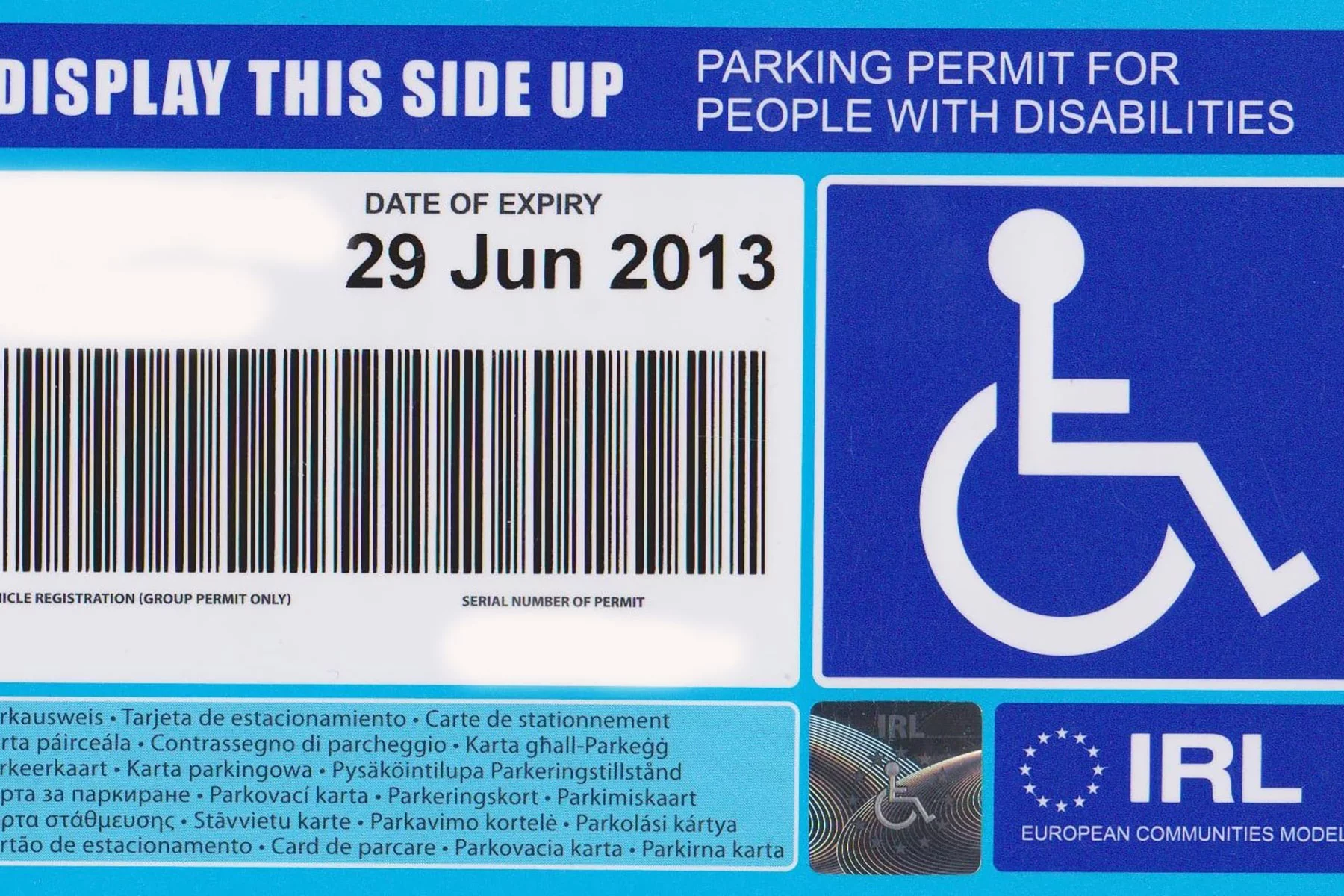
Drivers with disabilities may also be eligible for tax reductions on vehicle purchases and can sometimes get funding to adapt their cars to make them more accessible. Find out more information by contacting the VIAS Institute. More information for the Wallonia region available on the AWSR website (in French and German).
You can find more useful information on disability services in Belgium from:
- The Directorate-General for Persons with Disabilities (La Direction Générale Personnes Handicapées – DGPH) for nationwide information (in French, Dutch, and German)
- The Flemish Agency for Persons with Disabilities (Vlaams Agentschap voor Personen met een Handicap – VAPH) for the Flanders region (in Dutch)
- Agency for a Quality Life (Agence Pour Une Vie De Qualité – AVIQ) for the Wallonia region (in French)
- RéCi-Bruxelles for the Brussels-Capital Region
- Department for Self-Determined Life (Dienststelle für selbstbestimmtes Leben) for the German-speaking community in East Belgium
Car registration and maintenance in Belgium
All road vehicles in Belgium, whether bought or imported, need to be registered with the Vehicle Registration Service (DIV/DVI). If you live as an expat in Belgium, you need to register your car within six months of your arrival if you plan to stay for more than a year – or you could risk a fine.
You can register at a local registration center or online using WebDIV (in French). Once you have done this, you will receive your vehicle registration certificate and rear license plate. You’ll then need to buy a copy plate for the front of your car. License plates in Belgium stay with the owner rather than the vehicle, meaning that you transfer them if you buy a new car.
Belgian plates are white and consist of red writing. Since 2010, this has consisted of a single numerical digit, followed by three letters and then three further numbers. On the left of the plate is the EU flag with the letter B underneath.
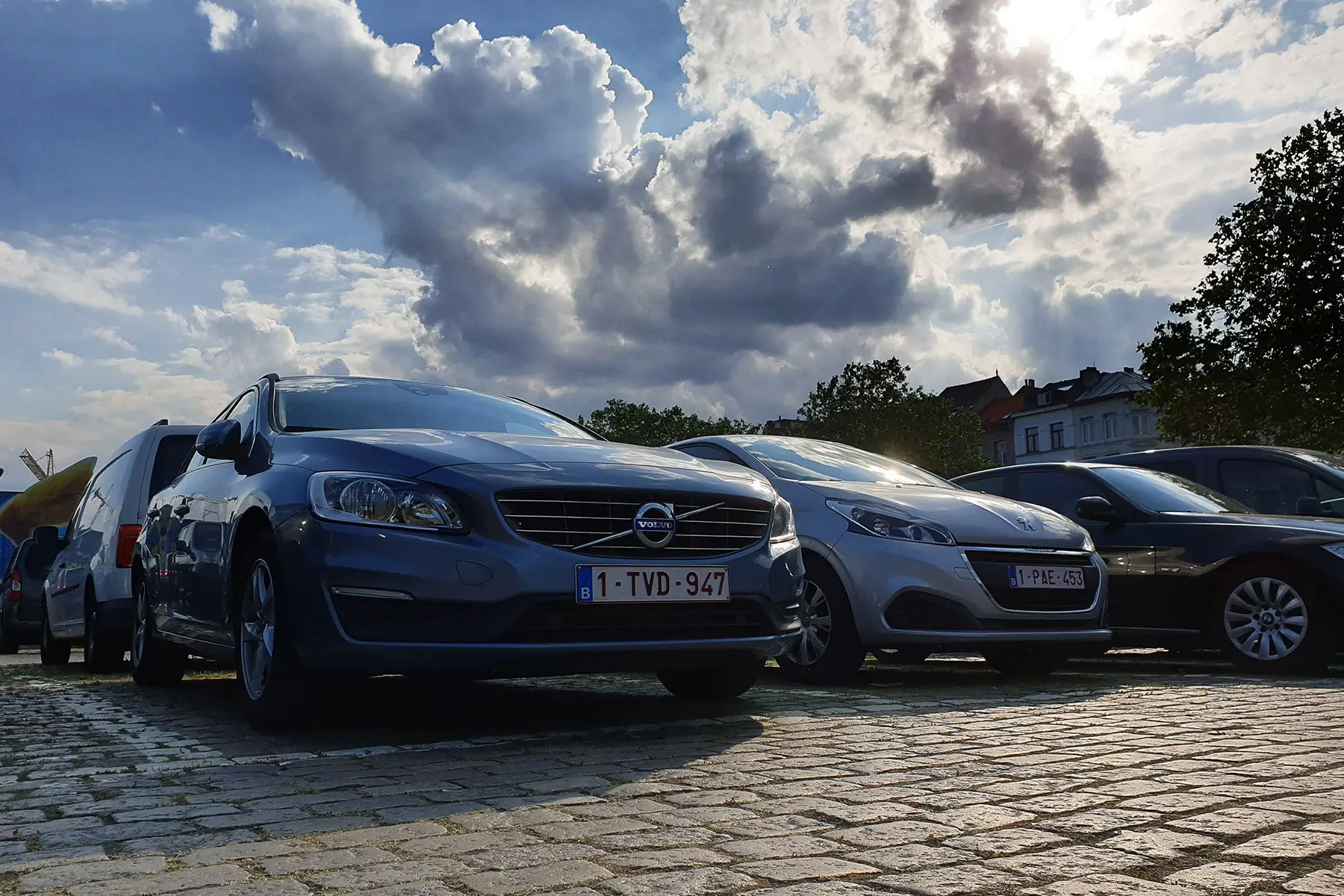
You should receive license plates within 3-8 working days after your registration, although this is usually quicker if you register online. Your registration certificate is made up of two parts – one to keep in your vehicle and one to keep at home.
You should update your vehicle registration details every time you move to a new municipality in Belgium.
Car inspection in Belgium
Vehicles in Belgium need to undergo a roadworthiness test (Dutch: Autokeuring, French: Contrôle technique) when they are four years old and then annually after this. Tests also apply when a car is sold, involved in an accident, or is significantly modified. You can find local vehicle inspection centers and book appointments online here (in French). Alternatively, check for details with your local commune.
If a car fails inspection, it will be issued with a temporary certificate (valid for either 15 days or three months) or, in extreme circumstances, taken off the road. You will need to carry out the necessary repairs and then book for a re-test. Anyone caught driving a car without a valid inspection certificate can be fined.
Driving costs in Belgium
Beyond the costs of learning to drive and getting a license, there are a number of other driving-related costs that you’ll need to budget for in Belgium. Running a car is not cheap. According to the 2021 Car Cost Index, Belgium is the sixth-most expensive European country with average driving costs of €959 a month.
Outlays to consider include:
- Registration fee – a one-off fee when you register a new or imported car, which is around €30 for registration plus license plate.
- Maintenance – the compulsory roadworthiness inspection is currently €38.90 for petrol cars and €47.70 for diesel cars. See a full list of fees (in Dutch).
- Road tax – costs depend on the engine power of your vehicle. You can check your likely annual cost on this calculator (in Dutch).
- Car insurance – varies from a few hundred to over a thousand euros per year depending on insurance type, vehicle type and driver profile. Check likely costs on this calculator.
- Fuel costs – if you have an oil-powered car, current costs are €1.65 per liter for petrol and €1.69 for diesel.
In addition to this, you’ll need to also think about parking costs, general repairs, membership club fees and whether you’ll need to pay for registration for LEZ.
Driving rules and penalties in Belgium
General road rules in Belgium
The Highway Code is the general rule book regulating drivers in Belgium. It is available on the government website in both French and Dutch. It includes rules of public road use, information on road signs, parking regulations, what to do if an accident occurs and more.
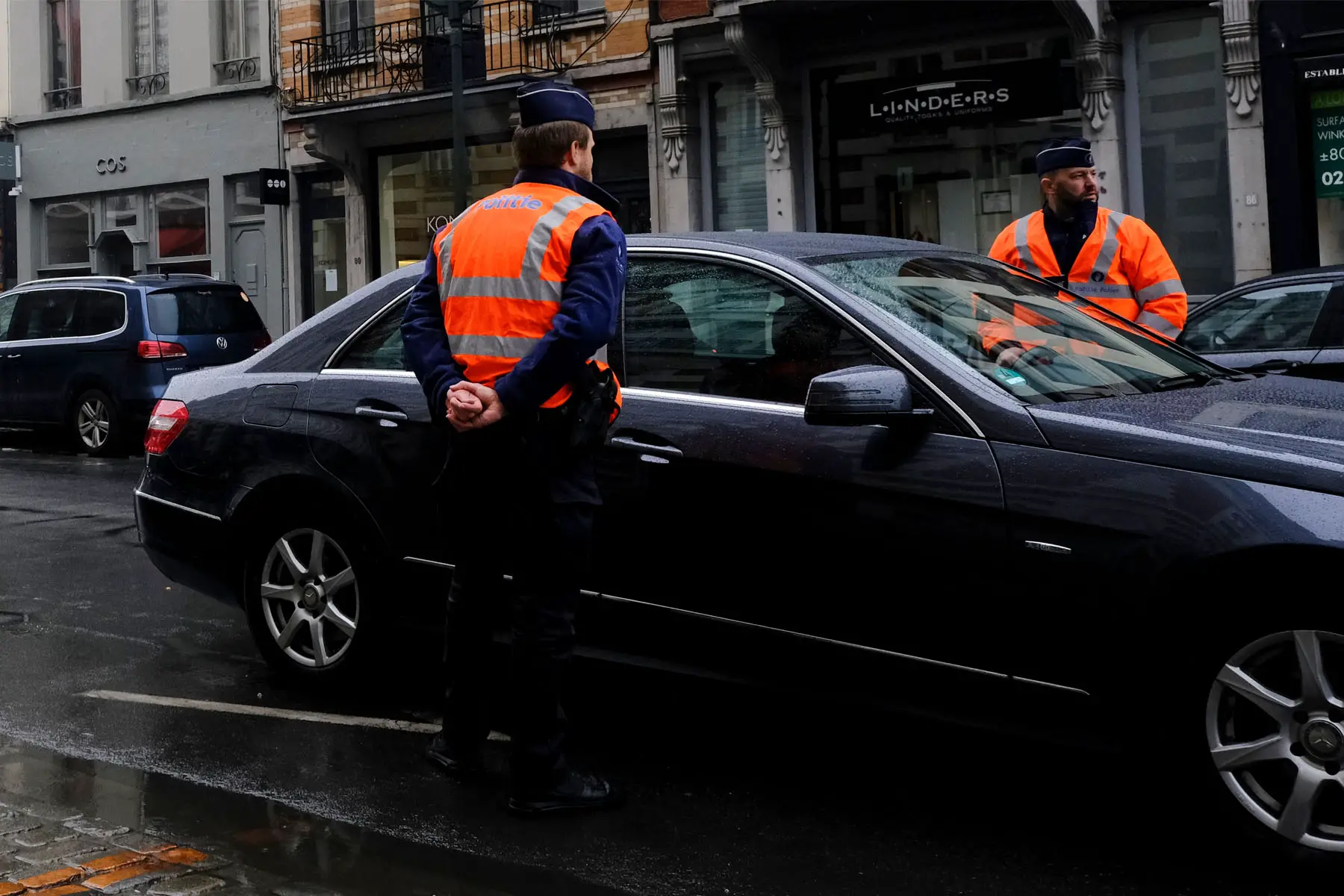
General road rules in Belgium include:
- Overtaking on the left except when it is prohibited to do so, for example at intersections. Drivers must leave a minimum distance of one meter when overtaking cycles or mopeds.
- Vehicles coming from the right have priority, although vehicles already present on roundabouts coming from either direction have priority.
- Drivers must always give way to trams and to pedestrians at pedestrian crossings.
- Seatbelts are mandatory for both driver and passengers.
- Winter tires are not mandatory but are permitted between October and April.
- Children less than 1.35m tall must travel in an adapted car seat.
All drivers should keep the following in their car at all times:
- Valid driving license (kept on the driver)
- Car insurance and registration certificates
- Reflective jacket
- Warning triangle to use in the event of an accident or breakdown
- Headlight beam deflectors
- First aid kit
- Fire extinguisher, unless the car is registered in another country
Penalties for minor traffic offenses in Belgium
The Belgian Highway Code lists four degrees of driving offense. First and second degree violations are considered minor offenses. These include:
- First degree – for example, minor speeding offenses, parking violations, not having regulation equipment in your car. Maximum fine amount currently €58.
- Second degree – for example, not giving way, driving without a seatbelt, driving through an amber light. Maximum fine amount currently €116.
Police in Belgium have the power to issue on-the-spot fines. Amounts are higher for repeat or multiple violations, which can also lead to harsher punishments such as driving suspensions. Police can also seize uninsured vehicles.
Speed limit in Belgium
Similar to most countries, the speed limits in Belgium vary according to type of road. They are:
- 20km/h in residential areas
- 50km/h in built-up town/city areas
- 90km/h in out-of-town areas (70km/h in Flanders)
- 120km/h on motorways
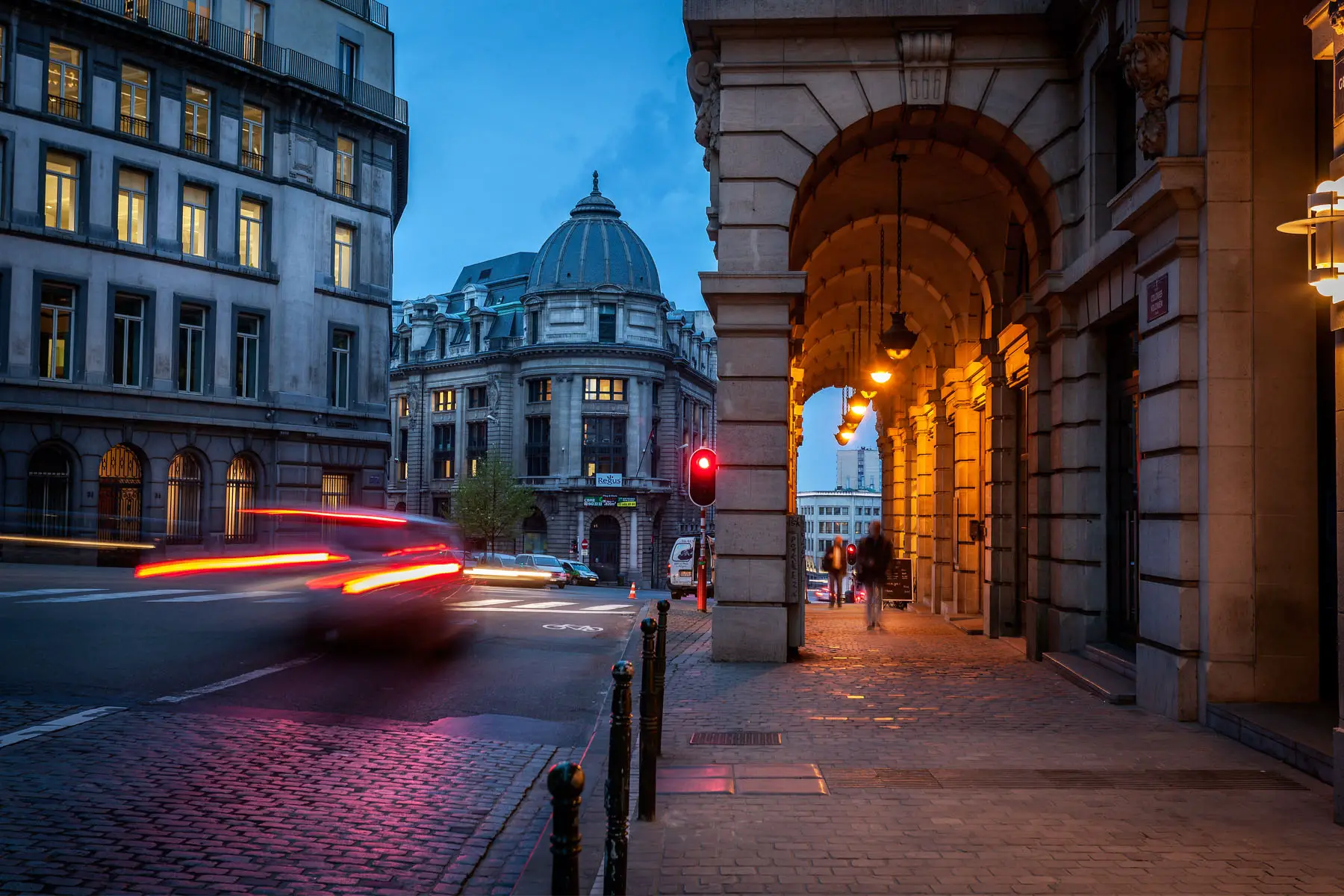
Fines for speeding offenses in Belgium range from €53 for minor breaches to €4,000 for serious excesses. You also risk disqualification from driving for between eight days and five years, depending on level of violation.
Belgian authorities use traffic calming measures such as speed camera and radar speed traps to encourage careful driving.
Driving under the influence in Belgium
The alcohol limit for Belgium when driving is 0.5g per liter of blood, or 0.2g/L for professional drivers. This is lower than in countries such as the UK, where the current limit is 0.8g/L in most parts. If you are caught over the legal limit, you can get fined anywhere between €179 and €1,260, depending on how intoxicated you are. This can rise to up to €16,000 if summed by the public prosecutor. Fines for professional drivers with between 0.2-0.5g/L in their system are currently €104.
You also face a driving ban of anywhere between three hours (two hours if a professional driver with less than 0.5g/L in their system) and five years. If you have more than 1.5g/L in your system, the ban is at least 15 days.
Driving while under the influence of drugs results in an immediate 15-day ban. You can also be fined up to €40,000 and banned for up to five years if summoned by the public prosecutor.
Distracted driving laws in Belgium
You are currently allowed to use mobile phones while driving in Belgium if they are connected to a hands-free device. Driving while holding a mobile phone or other electronic device with a screen is illegal, punishable with a fine. Distracted driving causes at least 50 deaths and 4,500 injuries in Belgium each year.
In January 2022, Belgian authorities increased the fine for mobile phone use while driving from €116 to €174.
Driving without a license in Belgium
If you are caught driving without a valid license in Belgium, you face a driving ban of between eight days and five years. You may also have to pay a fine of up to €11,000 and could face imprisonment. Non-resident drivers could even face deportation.
Driving in a LEZ without property registration is punishable with a €150 fine.
Read more information on Belgian traffic fines here. You can also check the VIAS Road Safety Institute for useful information, guidance and statistics.
Road signs in Belgium
Road signs in Belgium are generally split into six categories:
- Warning signs – also called hazard signs, they warn road users of potentially dangerous situations. They are usually triangular, with a red border and white background.
- Prohibition signs – telling drivers what they are not allowed to do. Usually circular, with a red border and white background.
- Mandatory signs – also called bond signs, they consist of instructions that drivers must follow. Usually circular, with white images on a blue background.
- Information signs – also called indication signs, they provide information about a traffic situation or give directions. They are mostly rectangular or square, with either a blue or white background.
- Priority signs – these tell you which road users have priority in different situations. They come in a variety of different formats.
- Parking signs – give information about parking. Usually a blue square/rectangle containing a large white P.
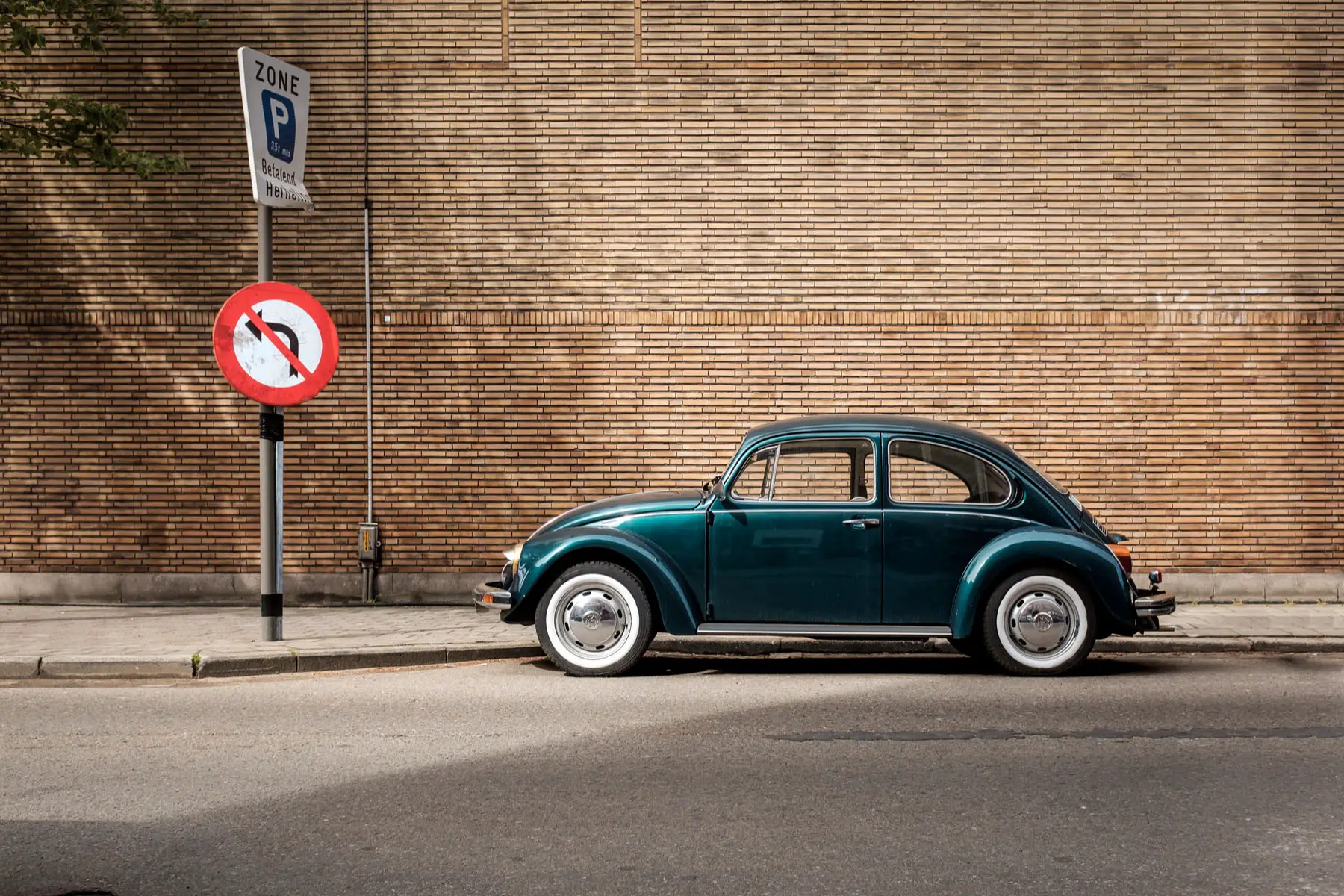
You can read more detailed information on Belgian road signs in the Highway Code.
Traffic information in Belgium
Traffic congestion is common in Belgium, with roads in the big cities frequently clogged up. Belgium ranks 34th on the 2022 Global Traffic Index, second only to Ireland out of EU countries. Two cities – Brussels (3) and Antwerp (48) – are among the 50 most congested in the world.
For up-to-date traffic information, there are a number of websites and tools that you can check. For nationwide updates, check VRT (in Dutch) for travel reports, maps and estimated journey times. You can also see traffic reports on the federal police’s website (in French) and on RTBF Radio and its website (in French), where you can also report traffic problems.
For information specific to the regions, try:
- The Flanders Traffic Control Center (Verkeerscentrum) for Flanders (in Dutch)
- Trafiroutes for Wallonia
- Brussels Mobility for the Brussels-Capital Region
There are also numerous English-language websites where you can get real-time traffic news, for example, Michelin in the UK. Another good option is the Waze travel and traffic app.
For the more tech-savvy drivers, some of the websites listed above also have apps that you can download to your smart device.
Parking in Belgium
Parking meters control parking regulations in city centers, or in ‘blue zones’ by using a special disc (showing the time of arrival). These are available at supermarkets, petrol stations and police stations. If using meters, you must buy a ticket from a machine and place it clearly on the dashboard, showing valid hours.
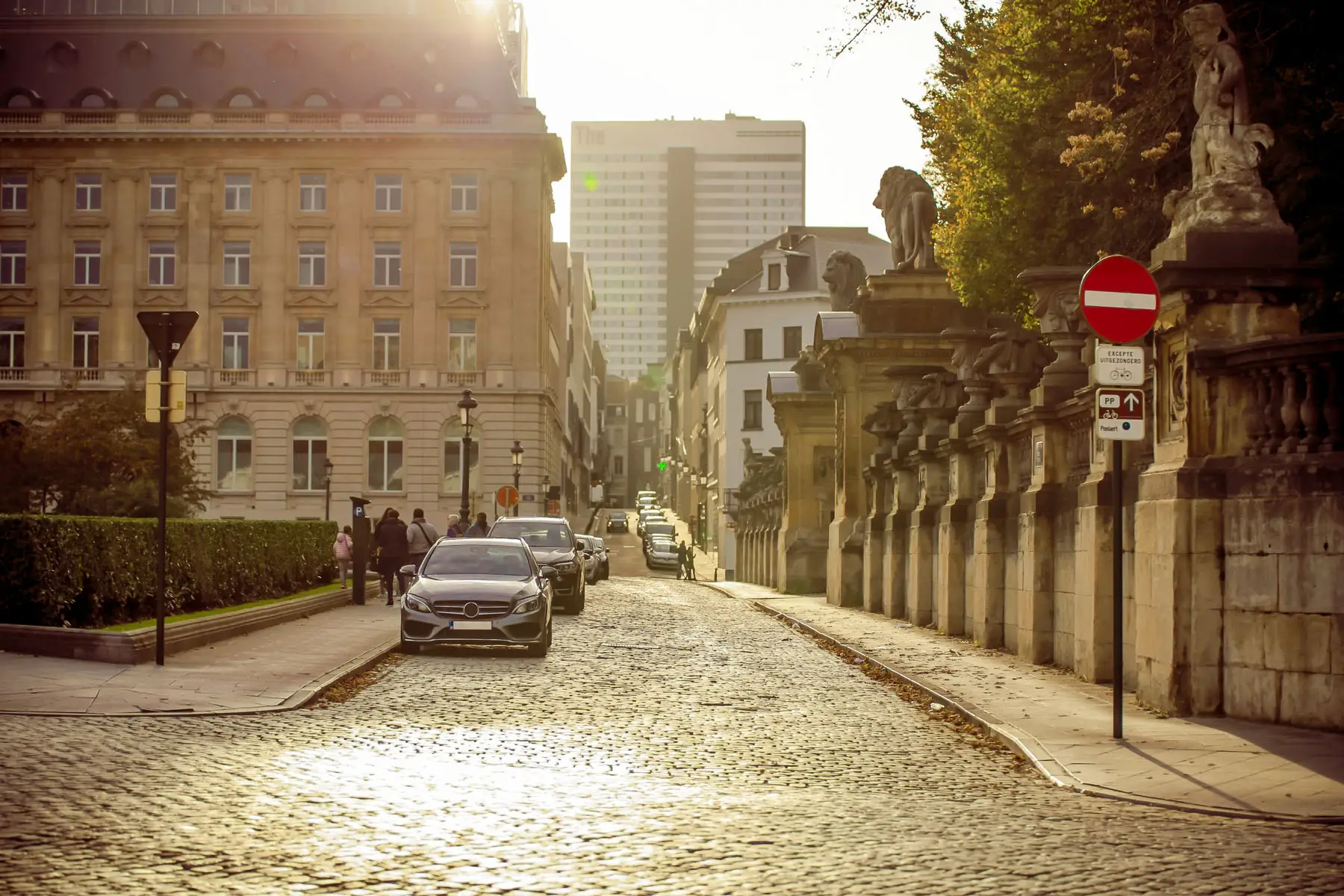
You can also park in designated car parks which usually have parking meters. Find car parks in your area on the Interparking website.
Residents without parking facilities within their accommodation can apply for a municipal parking card that allows parking within a certain distance of their residence. Check your local municipality details.
Watch out for temporary signs left by the commune to indicate that the road needs to be kept clear for road works. If you ignore these, your car may be towed away. You can’t park within 15 meters of tram and bus stops. Certain very busy streets are marked with a red triangle stating (Dutch: Ax Rode, French: Axe Rouge), meaning that no parking is permitted from 07:00 – 09:30 and from 16:00 – 18:00. Additionally, a yellow line on the curb indicates no parking.
Parking areas usually have a clear sign, usually a white P on a blue background. See more information in the Highway Code.
Parking costs and fines in Belgium
You can find detailed information about parking fees on the websites for most Belgian communes. If you have a ‘blue zone’ disc, this usually entitles you to two hours of free parking. Otherwise, typical rates are between €1-2 per hour. See information on the Brussels website as an example. Some municipalities now have digital payment options such as apps. You can also use apps such as this one by 4411 (information in Dutch).
Disabled parking in Belgium
Belgium offers designated parking spaces for disabled drivers. These can usually be identified by a wheelchair symbol. Some car parks offer free disabled parking.
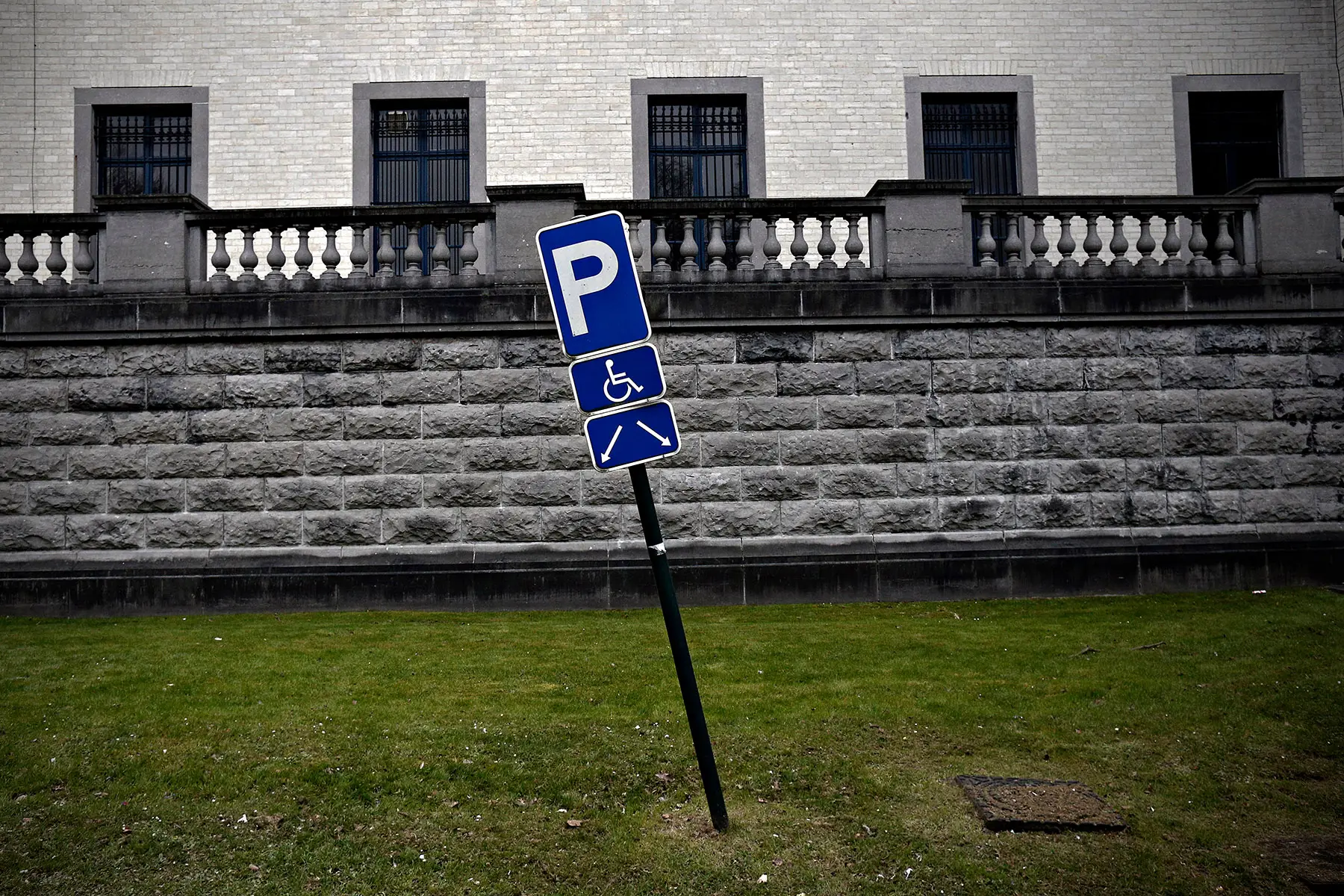
If you are a driver with a disability, you can apply for an EU disability parking card that is valid in all EU/EFTA countries.
Road accidents and breakdowns
Road accidents in Belgium
According to EU statistics, there were 56.4 road accident deaths per million people in Belgium in 2019, slightly above the EU average of 51.2. If you are involved in an accident that causes either damage to a vehicle or personal injury to someone in Belgium, you should:
- Stop immediately
- Call the emergency services in the event of a serious accident
- Put on your reflective jacket and place your warning triangle behind your car
- Complete your EU accident report form which you should receive from your car insurance company
- Get the name, address and vehicle details (registration, license plate number, car insurance details) from any other driver(s) involved
- Take details from any witnesses (personal details and statements) if necessary
- If there is vehicle damage, you can take pictures or videos as evidence
You will need to file a claim with your car insurance provider unless in a collision with another driver who is at fault, in which case their third party insurance should cover you. You will also need to follow police instructions if they are involved.
Failure to stop at the scene of an accident you are involved in is considered a serious traffic violation and can result in a large fine or even a jail sentence.
Vehicle breakdowns in Belgium
If your vehicle breaks down while driving in Belgium, you should move over to the emergency lane on the inside of the road if possible. You will find these on motorways and most busy roads.
You can get vehicle breakdown and roadside assistance coverage from most insurance companies in Belgium, such as Allianz Assistance. Alternatively, you can join an automobile membership club. The main club in Belgium is Touring Club Belgium (TCB) (website in French and Dutch). Membership deals start at €60 a year, although you can pay more for additional services such as Europe-wide coverage or replacement vehicle provision. You can also use TCB services as a non-member but you will have to pay a one-off fee.
Cars in Belgium
As long as you are a Belgian resident, you can buy cars in Belgium, both new and used, as well as import them from another country.
Buying a car in Belgium
You can buy new cars in Belgium through dealerships and online platforms. With used cars, you can also find them through private sellers and events such as car auctions. Many Belgian dealerships sell both new and secondhand cars.
You’ll usually need at least personal ID and a residence permit to buy a car in Belgium and get it registered. Read more on the Belgian government website about buying new and used vehicles (in French).
Importing a car in Belgium
You can import most cars into Belgium, however the procedures you must follow depend on where you are coming from.
If you are importing from the EU/EFTA, you can usually import without paying any tax in Belgium as long as you’ve paid VAT on any new cars owned for less than six months. You’ll just have to declare it to Belgian customs.
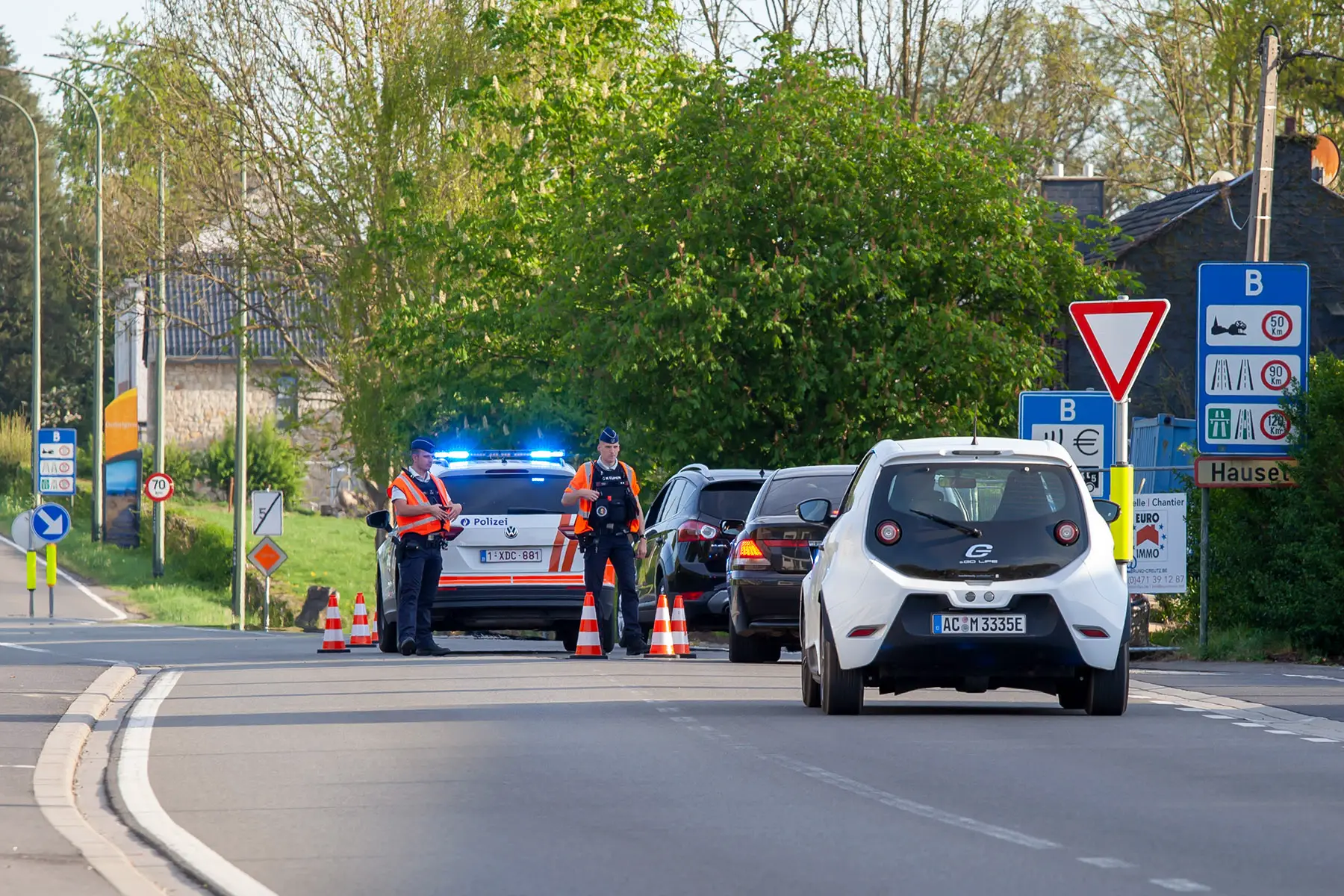
If you import a car from outside of the EU/EFTA, you will usually have to pay an import duty. You’ll need to import through customs, register the car in Belgium and will usually need it to pass a roadworthiness inspection test.
Selling a car in Belgium
You can sell a used car in Belgium in a number of different ways, including through dealerships, online and through private sellers. Dealers will take care of most of the paperwork requirements, however they also charge a fee. To sell, you will need to provide:
- Sales contract (see here for template)
- Registration documents
- Roadworthiness certificate
- Standards conformity certificate such as the EU Certificate of Conformity
- The Belgian Car Pass
Online sites where you can sell used cars in Belgium include AutoScout24 (in Dutch and French), Cardoen, and WijKopenAutos (in Dutch), which also provides a free car valuation.
Renting a car in Belgium
Of course, if you don’t want the hassle of owning a car or are in Belgium for only a short period, you can rent a car instead. Most car rental companies require the driver to have a driving license that’s been valid for at least two years, making the minimum age that you can rent a car 19–20 in most cases.
You’ll need to provide ID and a valid driving license/international driving permit. You will also need to pay a deposit (usually between €300–1,000). Although car insurance is included in the rental price, many companies ask for excess insurance on top of this to cover all risks.
Popular car rental companies in Belgium include:
Prices generally vary from €15 a day for budget cars to around €40 a day for luxury models. Compare prices on sites such as Auto Europe.
Carpooling/car sharing in Belgium
Carpooling – or car sharing – has become an increasingly popular way of economizing on transport costs, and helping the environment, in many countries. In Belgium, many professionals in the bigger cities use it as a more convenient communal option than public transport.
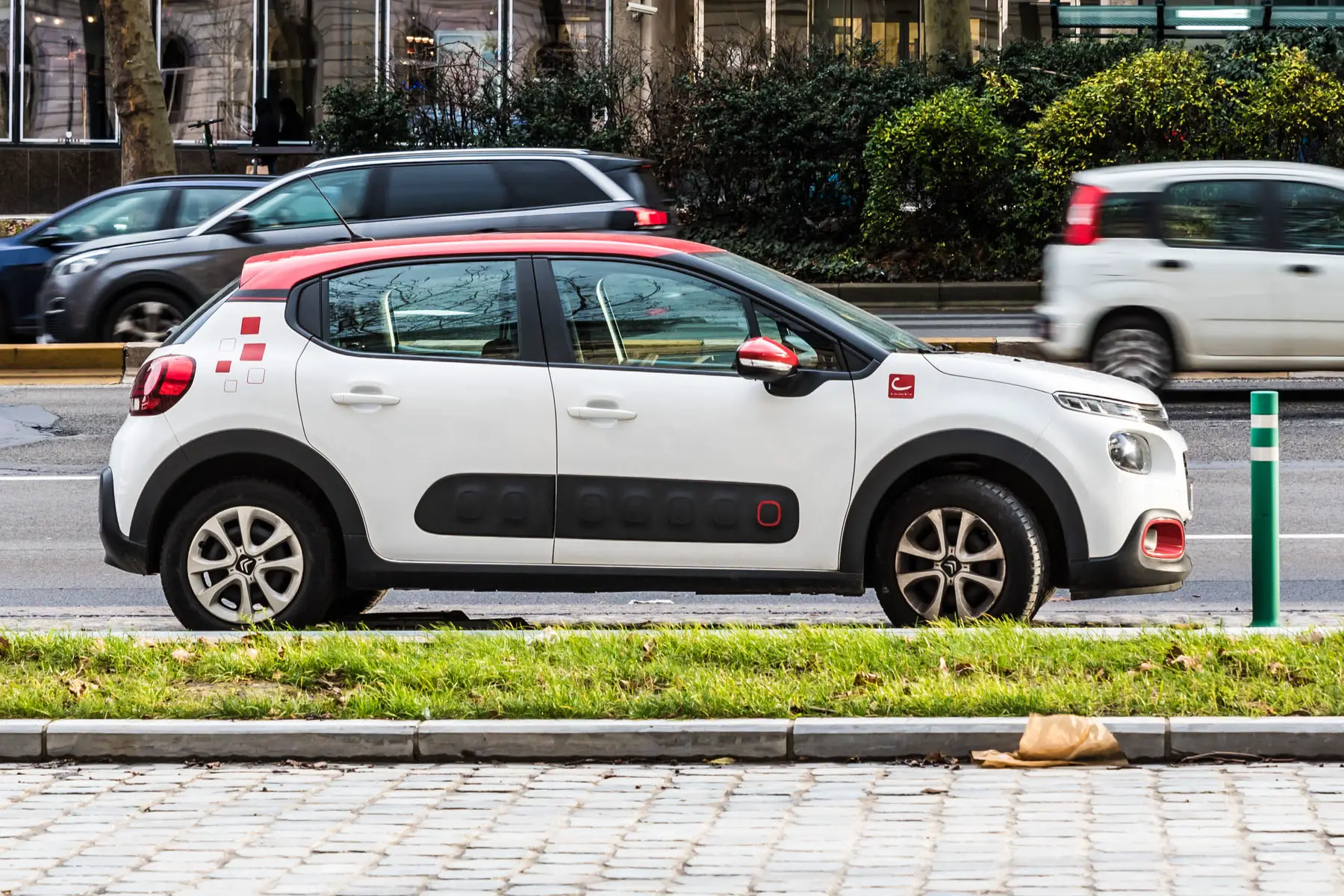
Carpooling platforms in Belgium where you can search for and advertise car sharing in your local area include Carpool and CarpoolWorld. You can also check the Expatica Belgium business directory in the car sharing section.
Car repair in Belgium
If you have any problems with your car while driving in Belgium, you can take it to a local garage or auto repair shop. For newly-bought vehicles, you may prefer to use a garage linked to the dealership. Otherwise, search for auto garages, auto glass repair or car parts providers on websites such as Europages or Golden Pages.
Useful resources
- Belgian government online portal – section on vehicles and driving in Belgium
- Federal Public Service for Mobility and Transport – department dealing with driving and transport in Belgium
- VIAS Institute – Belgian road safety institute
